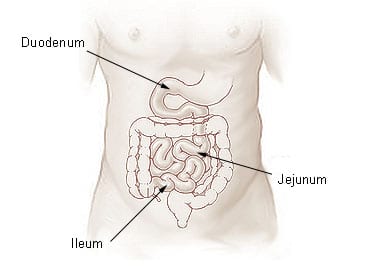A large international collaboration of researchers has tripled the number of SNPs associated with Crohn’s disease, an inflammatory bowel disease that affects about 500,000 Americans. Their results were published online Sunday in Nature Genetics.

Data from more than 16,000 people with European ancestry — 8,059 from a combination of three previously published reports, a new set of 2,325 patients and 1,809 control subjects, and a group of 1,339 families — identified 21 new SNPs associated with Crohn’s disease and confirmed 11 previously implicated SNPs.
Although many of the SNPs described in the report only slightly impact the risk of developing Crohn’s, the findings could be important in helping researchers understand the basic biology of the disease.
“Studies such as this are not about developing diagnostic tests, but about identifying targets for new drug therapies. Crohn’s disease can be a very serious condition, often requiring surgery, and the sooner we can understand the underlying causes, the sooner we will be able to devise new treatments to help our patients,” said study author Dr. Miles Parkes.
Some of the newly identified SNPs are in (or near) genes linked to diseases other than Crohn’s, including type 1 diabetes, arthritis, psoriasis, and asthma. This highlights “the important relationships between different diseases and, as such, may offer valuable insights into the pathways that lead to common symptoms such as inflammation,” said Dr. Mark Walport, director of the Wellcome Trust, one of the funding agencies that supported the study.
The researchers suspect there are many more genetic associations left to find for Crohn’s disease.
“These [SNPs] explain only about a fifth of the genetic risk, which implies that there may be hundreds of genes implicated in the disease, each increasing susceptibility by a small amount,” said the study’s lead author, Jeffrey Barrett.
Out of a possible total of 46, 80% of people will have between 17 and 25 copies of the riskier versions of these SNPs. Because there are so many of these SNPs — and because the riskier versions are often more common than their less risky counterparts — even people at the high end of the distribution are not much more likely than average to develop Crohn’s disease.



